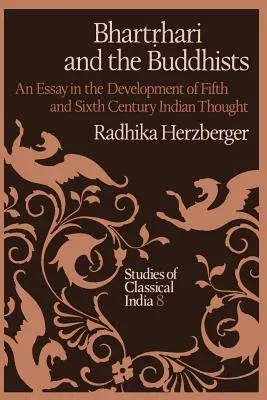Radhika Herzberger
(Author)Bhartṛhari and the Buddhists: An Essay in the Development of Fifth and Sixth Century Indian Thought (1986)Paperback - 1986, 26 September 2011

Qty
1
Turbo
Ships in 2 - 3 days
In Stock
Free Delivery
Cash on Delivery
15 Days
Free Returns
Secure Checkout
Part of Series
Studies of Classical India
Print Length
253 pages
Language
English
Publisher
Springer
Date Published
26 Sep 2011
ISBN-10
9401085749
ISBN-13
9789401085748
Description
Product Details
Author:
Book Edition:
1986
Book Format:
Paperback
Country of Origin:
NL
Date Published:
26 September 2011
Dimensions:
22.86 x
15.24 x
1.52 cm
ISBN-10:
9401085749
ISBN-13:
9789401085748
Language:
English
Location:
Dordrecht
Pages:
253
Publisher:
Series:
Weight:
381.02 gm

